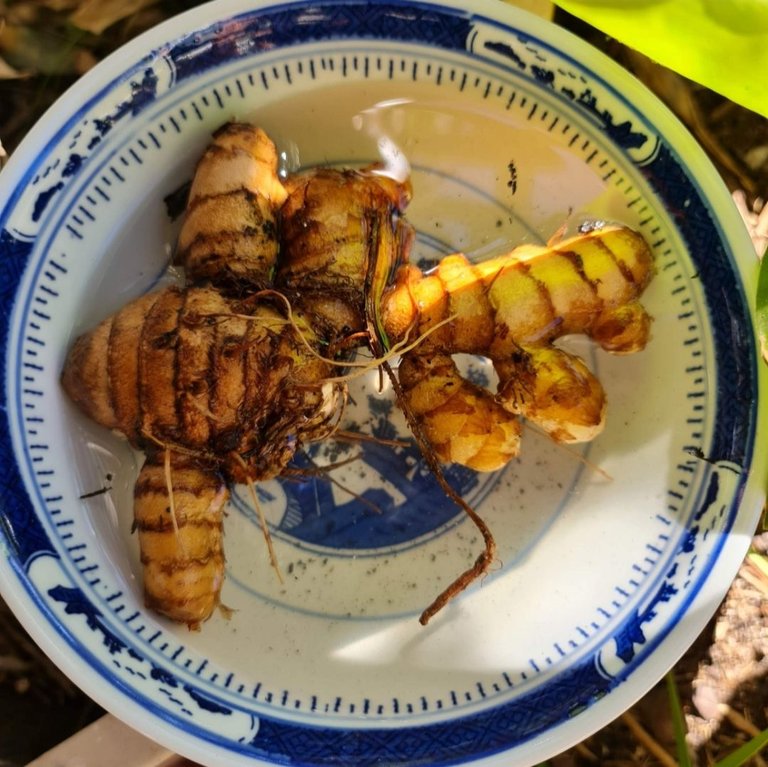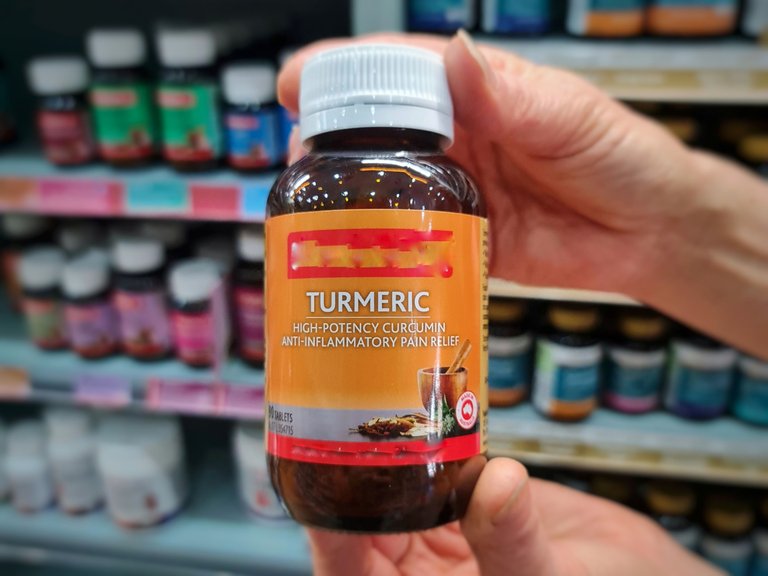A little about Turmeric
Turmeric is an amazining healer, well known for its ability to reduce inflammation. But is it overrated as a natural herbal product? In some cases, yes.

Let's start by looking at the 'active' ingredient, curcumin. An active ingredient is a constituent that scientists, in their love of digging into things, gave isolated as what is, in their minds, the constituent that firs the work. Sure, if you extract curcumin from Turmeric and apply it tio sissue and cells, it has an inflammation reducing property but...
Curcumin alone is hard for our bodies to assimilate which makes most of what is on those big capsules that people make at home wasted. Have you noticed how people go overboard when famous herbalists or naturopaths make a YouTube video about something? At one time, I had a friend complaining of diarrhoea. It came on recently and was quite intense.
A little investigation yielded that he had seen a post about Cayenne on YouTube by a well known health celebrity and had started making his own capsules. Not only was he making his own capsulesbut had brought the largest ones he could find (real horse tablets in the old parlance) and was packing them solid with powder. Not only that, he was taking 2 at a time three times a day! He shared the video with me and when I watched it, there only the vaguest mention of dosage, so their poor victim had just decided that more was better!
Secondly, curcumin is oil suble, not water soluble, making the Turmeric teas that I've seen practically useless. Yes you'll get some effect but it will be magnitudes smaller than it could have been.

First, forget about using it as an isolated ingredient. Even though curcumin is difficult to assimilate as an individual constituent, whole Turmeric rhizome has other compounds in it that increase the availability of curcumin enormously.
You are sometimes better adding whole Turneric rhizomes to meals, especially meals that contain oils and fats.
Ginger increases the assimilation of Turmeric and helps disperse its benefits throughout the body. Black Pepper has a powerful reputation with, not only Turmeric but other herbs too.
Traditionally, in India Turmeric is drunk mixed in warm milk . That way, the fats in the milk help boost the effect of the Turmeric.
If you do go the route of powders and capsules, pay attention to the source of your curcumin. While the original source was from the Turmeric plant, it is now possible to synthesise the chemical in factories, from fossil fuels.
Also, despite what the marketing companies tell you, Turmeric isn't for everyone. In herbalaim, everyone is treated as a unique individual, with their own energies and needs.
Even though it can reduce inflammation, Turmeric tends to be warming and drying, and can exacerbate problems with people of a hot, dry nature. It can increase skin dryness and general irritation.
Turmeric is relatively easy to grow here in SA, even from shop bought rhizomes. We've a whole page (or was it post?) about it on our website.
Some of you may have seen that I've been writing a series of posts about herbs and making herbal remedies at home. I want to share what I know of this topic so that, as the world gets crazier, folks will have other avenues of medical care, namely those of themselves and their community. If you look back over this blog, you can see heaps of info on the topic, plus loads and loads of posts on herbs and using Australian bushfoods from a white perspective. If you haven't been around on in the @hivegarden and @naturalmedicine communities for long, you may be interested in looking back. There's w-a-a-a-a-y too much there for me to repost and the Hive system doesn't let you vote on old posts so, if you're happy with what you find, I believe that there is now a tip option...





I love using turmeric in many recipes but now I may have to try it in warm milk too 🤩
It seems to be a traditional way in India